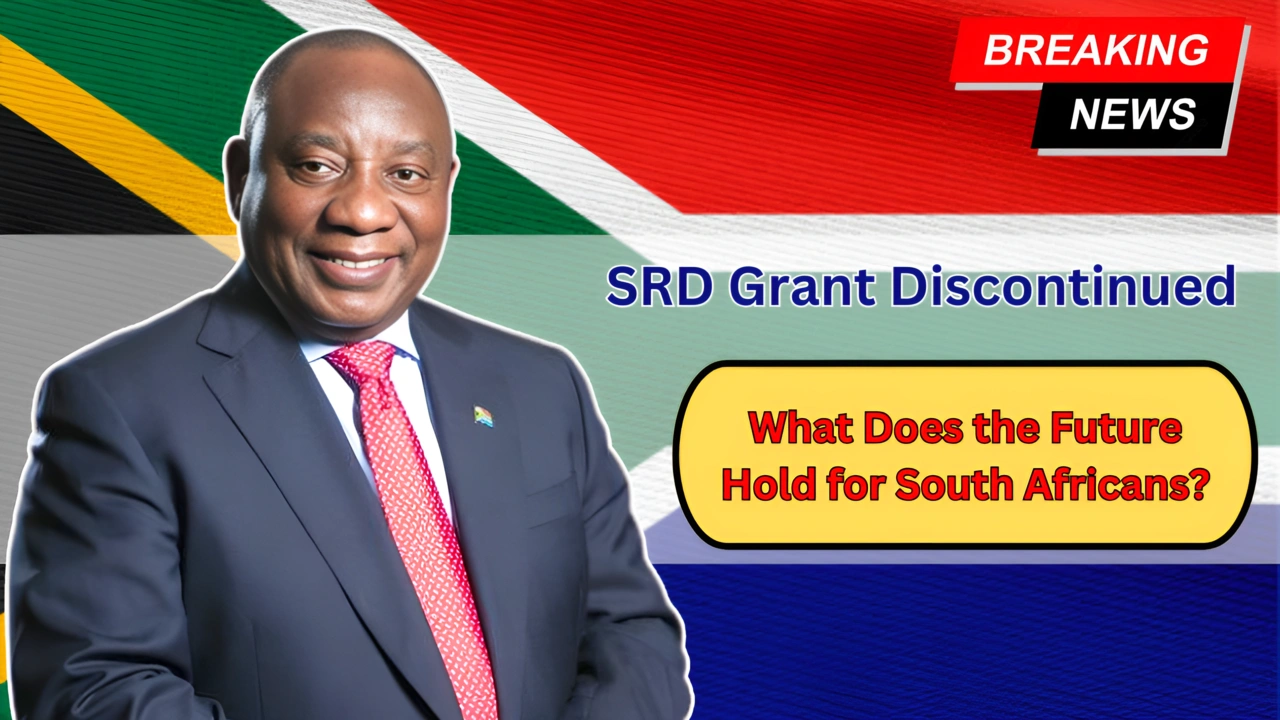The Social Relief of Distress (SRD) grant has been a vital lifeline for millions of South Africans since its introduction in 2020. Initially designed as a temporary measure to ease the financial burdens caused by COVID-19, it provided essential aid to unemployed individuals without access to other forms of government welfare. The SRD grant played a critical role in helping families meet basic needs and alleviating the effects of poverty.
However, with the grant set to expire in March 2025, there are growing concerns about what the future holds for social assistance programs in South Africa. Discussions are already underway regarding potential alternatives, with proposals including a Basic Income Grant (BIG) and modified employment-based subsidies. The decisions made during this transition will have far-reaching implications for South Africa’s approach to unemployment and poverty.
The Role of the SRD Grant in South Africa
The SRD grant has been more than just a temporary relief measure. It became a cornerstone in the battle against economic hardship, offering a lifeline to individuals aged 18–59 who were not eligible for other social grants. Here’s a closer look at the role it played:
- Addressing Immediate Needs: The R350 monthly grant helped recipients cover basic expenses, such as food, utilities, and transport.
- Reducing Poverty: According to government reports, the SRD grant lifted millions out of extreme poverty, easing the financial strain on low-income households.
- Flexibility and Accessibility: Unlike many other social grants, the SRD grant allowed recipients to use the funds for their specific needs, providing quick, direct relief.
By 2023, over 7 million South Africans were benefiting from the SRD grant. However, its temporary nature highlighted the need for a long-term solution to address the socio-economic challenges faced by vulnerable populations.
Potential Successors to the SRD Grant
As the expiration of the SRD grant approaches, policymakers are exploring alternative options for continued social support. Here are the most discussed possibilities:
1. Basic Income Grant (BIG)
The Basic Income Grant is a proposed solution that would offer ongoing financial support to unemployed individuals.
- Advantages: A BIG would provide stability over the long term and could be adjusted for inflation, helping recipients maintain purchasing power even as costs rise.
- Challenges: Funding such a program would require substantial fiscal resources, which could necessitate higher taxes or budget reallocation.
2. Enhanced SRD Grant
An alternative to the BIG could be an enhanced SRD grant, where the government adjusts the amount or eligibility criteria to extend or expand the existing program.
- Advantages: This option would continue to address immediate financial needs while maintaining the current structure of the SRD grant.
- Challenges: While helpful, this may not be sufficient for individuals facing long-term unemployment or chronic financial instability.
3. Employment-Based Subsidies
Another possibility involves employment-based subsidies, which would combine financial assistance with job creation.
- Advantages: This model incentivizes employment, aiming to reduce dependency on welfare by encouraging people to enter the workforce.
- Challenges: Many unemployed individuals face barriers such as skill gaps, geographic limitations, or a lack of job opportunities, making this approach challenging for some.
Impact on Vulnerable Populations
The expiration or replacement of the SRD grant will have significant consequences for vulnerable groups across South Africa. Some of the expected impacts include:
- Increased Poverty and Food Insecurity: Without a replacement grant, millions may face even greater financial hardship, exacerbating food insecurity and limiting access to basic needs.
- Strain on Existing Grants: Existing social grants, such as child support and old-age pensions, may face increased demand, placing additional pressure on SASSA’s resources.
- Impact on Rural and Female-Headed Households:
- Rural Areas: Limited access to alternative income sources could disproportionately affect people living in rural communities.
- Female-Headed Households: Women, especially those heading households, are already more likely to face economic challenges and could be further impacted by the loss of the SRD grant.
- Economic Instability: A sudden withdrawal of the SRD grant could lead to social unrest, particularly in areas with high unemployment and limited job opportunities.
Preparing for the Transition
As South Africa faces this pivotal moment, both individuals and the government must take proactive steps to prepare for the change.
For Individuals:
- Financial Planning: It’s crucial for current SRD grant recipients to start budgeting for potential reductions in income. Developing good financial habits will help cushion the impact of any future changes.
- Skills Development: Investing in education and vocational training can improve employability, opening doors to new job opportunities and reducing dependency on welfare.
For the Government:
- Clear Communication: Transparent updates on the progress of replacement plans will be essential to managing public expectations and preventing confusion.
- Stakeholder Engagement: Policymakers should work closely with civil society organizations and communities to develop inclusive solutions that meet the needs of all South Africans.
- Policy Innovation: Addressing long-term socio-economic challenges will require creative solutions that balance fiscal sustainability with social impact.
Conclusion: A Critical Moment for South Africa’s Welfare System
The potential end of the SRD grant presents a critical juncture for South Africa’s welfare system. Whether through a Basic Income Grant, an enhanced SRD, or alternative models, the government’s decisions will shape the future of poverty alleviation and unemployment support for years to come. As the country prepares for this transition, it is essential for both individuals and policymakers to work together to ensure that vulnerable populations are not left behind.



